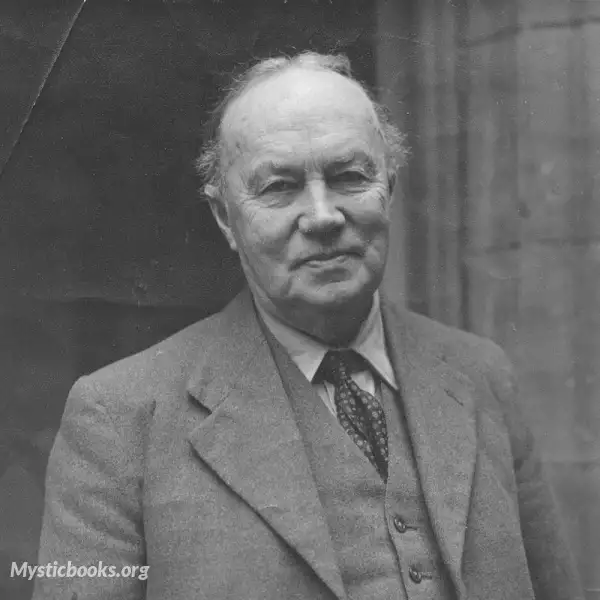
Timeline
Title
Country/Nationality
Alexander Dunlop Lindsay
Alexander Dunlop Lindsay was a visionary who believed in the power of education to transform lives. He was an influential figure in academia, serving as a professor of philosophy, a college president, and a leader in higher education policy. Lindsay was not only a scholar and educator but also a compassionate leader who cared deeply about his students and colleagues. His life's work reflects his commitment to excellence, equity, and social justice. In this post, we will explore the life and contributions of Alexander Dunlop Lindsay, a person whose legacy continues to inspire and impact the world of education today.
1. Early life and education
Alexander Dunlop Lindsay was born in 1879 in the town of Crieff, Scotland. He grew up in a family that valued education and encouraged him to pursue his interests. He attended the University of Glasgow, where he studied classics and philosophy. Lindsay was an exceptional student, and he quickly earned a reputation as an intelligent and insightful scholar. After graduating from the University of Glasgow, Lindsay continued his education at the University of Oxford, where he studied philosophy and theology. It was during his time at Oxford that Lindsay developed a keen interest in the works of Aristotle and the ancient Greeks. This interest would shape his future work and influence his philosophical outlook. In 1903, Lindsay was appointed as a lecturer in philosophy at the University of Glasgow. He quickly gained a reputation as an engaging and inspiring teacher, and his classes were always filled with students eager to learn from him. In 1910, Lindsay was appointed as a professor of philosophy at the University of St. Andrews, where he continued to teach and inspire his students for many years. Throughout his career, Lindsay remained a passionate supporter of education and intellectual inquiry. He believed that education was the key to unlocking human potential and that everyone should have access to the tools and resources they needed to pursue their passions. This belief would guide Lindsay throughout his life and influence his work as a philosopher, teacher, and visionary leader.
2. Academic career and contributions
Alexander Dunlop Lindsay was not only a visionary but also an influential figure in the academic world. He began his academic career at Oxford University, where he earned a degree in classics. He then went on to study philosophy and theology at Edinburgh University, where he was awarded a Doctor of Divinity degree. Lindsay's academic career spanned several decades, during which he held numerous prestigious positions. He was a lecturer in philosophy at Edinburgh University and then at Oxford University. He was later appointed as the chair of Moral Philosophy at Glasgow University, where he served for many years. Lindsay's contributions to the academic world were significant. He was known for his expertise in the philosophy of religion, ethics, and epistemology. He was a prolific writer, and his works have been widely recognized as groundbreaking. Among his most notable works are "The Philosophy of Bergson," "Faith and Reason," and "The Essentials of Mysticism." His contributions to academic scholarship have influenced many students and academics over the years, and his ideas continue to be relevant today. Lindsay's academic career and contributions have left an indelible mark on the academic world, and his ideas continue to inspire new generations of scholars.
3. Leadership in higher education policy
Alexander Dunlop Lindsay was not only a visionary and influential person but also a leader in higher education policy. He believed in the importance of education and was passionate about creating educational policies that would benefit students and society. Lindsay was a former Vice-Chancellor of the University of Oxford and he was known for his innovative thinking and leadership style. During his time at Oxford, Lindsay worked hard to make the university more accessible to students from all backgrounds. He also believed that education should not just be about learning facts but also about developing critical thinking skills and encouraging creativity. Lindsay's approach to education and his leadership in higher education policy helped to shape the future of education in the UK and beyond. His legacy lives on today, and his vision and approach to education continue to inspire educators and policymakers around the world.
4. Legacy and impact on education today.
Alexander Dunlop Lindsay left a lasting legacy in the field of education that is still felt today. His innovative ideas and approach to education have influenced countless educators and students around the world. One of his most significant contributions was in the field of character formation. Lindsay believed that education should not only focus on academic excellence but also on the development of character. His approach was to teach students how to think critically and ethically, and to develop their moral character. This was a radical idea at the time, but it has now become an integral part of modern education. Today, many schools and universities around the world have adopted Lindsay's approach to character formation. Another significant contribution of Lindsay was his belief in the importance of interdisciplinary education. He believed that students should not only be taught within their own field of study but also have exposure to other disciplines such as philosophy, literature, and the arts. This approach has become widely accepted and is now a common feature of modern education. Lindsay's influence on education has been profound, and his ideas and approach continue to shape the education landscape today. He was a visionary and an influential person who pushed the boundaries of traditional education and left a lasting impact on the world.
Books by Alexander Dunlop Lindsay

The Philosophy of Immanuel Kant
This brief commentary on Kant's philosophy is a work that focuses solely on some of the main ideas Kant put forth in the three Critiques. Although not comprehensive, the narrative style of this volume makes it a pleasant read and will be a valuable "...